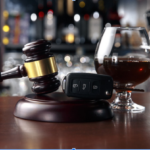If you are a driver in the state of Florida, you should be aware of your rights, obligations, and privileges especially with regards to operating a vehicle and keeping other road users safe. When it comes to traffic rules, consulting with top criminal defense lawyers like Stroleny Law, P.A. can help you stay safe and on the right side of the law.
The state’s law frowns heavily upon drinking and driving. The laws against drinking and driving, also known as DUI law holds that a person who is behind the wheel and operating a vehicle should not have a blood alcohol concentration that is above the legal limit of 0.08%. In addition, drivers who have proven that they are inebriated by their conduct and activities may be arrested for the offense of DUI.
The Florida DUI statute holds that persons who have been arrested for driving under the influence of drugs and/or alcohol will be fined up to $500 and may face up to a 6-month prison term for the offense. Persons who have been arrested for a second DUI will be faced with steeper penalties which may amount to as much as $1,000 in fines and up to a 9-month prison sentence.
The punishment for DUI convictions is more often than not based on the conditions surrounding the arrest and the crime committed. In some cases, defendants may face lesser charges and penalties while others may face harsher penalties based on the presence of aggravating factors.
Can A Driver Refuse A DUI Test?
A police officer cannot readily pull a driver over for DUI checks unless such a driver has exhibited certain patterns that constitute a violation of the traffic laws. A police officer may flag a driver down for running a red light, swerving uncontrollably, driving erratically, or for switching lanes without signalling. However, upon closer inspection and through physical and behavioral signs, the police officer may be able to tell whether or not the driver had been drinking prior to engaging the vehicle.
While the police officer is trying to conduct his or her duties, the driver also has some legal obligations which are required by the law. Under the Florida implied consent law, a driver may not refuse to participate in a sobriety test to establish Blood Alcohol Concentration. Under this law, a driver is regarded as having given his or her permission to be subjected to chemical tests using their breath, blood or urine to establish the concentration of alcohol in their blood.
If a driver, however, insists on refusing the field sobriety test, such a driver will be faced with certain consequences. The most significant of these is the suspension or revocation of their driver’s license for no less than a year. If, however, the driver has been flagged again and refuses the DUI test for the second time their driver’s license will be suspended for an extended period of time; a period of no more than 18 months.
It is also important to note that the failure of the driver to submit himself or herself to the field sobriety test is not an automatic guarantee that the case will go away. In some cases, the state Police Department may choose to press DUI charges in which case a conviction will spell many grave consequences for the driver.
Is DUI a Misdemeanor or Felony Offense?
DUI cases can either be a misdemeanor offense or a felony offense, depending on the facts of the case. If a person has been caught driving under the influence and arrested without any further complications, such a person may be charged with a misdemeanor DUI which carries lesser penalties.
However, Stroleny Law, P.A. reveals that a driver who has been arrested for DUI with aggravated facts surrounding the case may be faced with a much stiffer penalty. Some of the common complications that may lead to a Felony DUI offense include:
- Presence of a minor in the vehicle at the time of the arrest
- Driving on a suspended or revoked license
- Too high blood alcohol concentration
- Accidents leading to serious bodily injury to other road users
- A person who has been arrested and convicted for a third DUI within a period of 10 years.
- Drunk driving accidents leading in death of another person
- A person who has been convicted of DUI the fourth time
Common DUI Defenses from Attorneys at Stroleny Law, P.A.
The criminal defense attorneys at Stroleny Law, P.A. have been in business for years and have come across various DUI cases.They have crafted several defense strategies to get the case thrown out or to arrange a plea deal for their clients.
When faced with DUI charges, working with experienced attorneys is a must as they can help you influence the outcome of your case using their knowledge of the legal system. Below are some of the common defenses that can be adopted to get a defendant off the hook.
- Absence of probable cause by the arresting police officer
- Improper test procedures
- Faulty test equipment
- Chain of custody and more
When in need of top quality criminal defense attorneys in Miami, FL, visit Stroleny Law, P.A.
Related Posts












